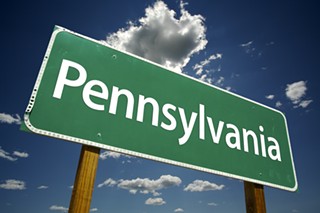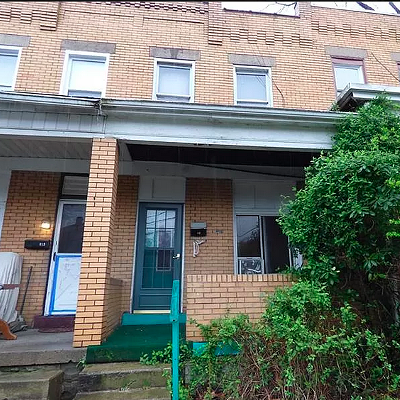For all intents and purposes, there's no difference between states that are just states and those that are commonwealths. The only reason for the distinction as far as I can see is for smug teachers to trip up hapless grade-school kids in civics class. I was one of those kids, if you must know, and to be honest the scars still haven't healed.
The thing is, I'm not alone. Many Pennsylvanians probably don't even know that, formally speaking, they live in the Commonwealth of Pennsylvania. In fact, even our own state -- er, commonwealth -- has a hard time remembering the difference.
For starters, the Commonwealth of Pennsylvania has a Department of State. And guess who presides over it? An official called the Secretary of the Commonwealth. There's a state seal, and it reads "state of Pennsylvania." The distinction seems to be that "commonwealth" refers to the land and citizens in general, while the word "state" is typically used to denote the government entity that presides over them.
But apparently, no one except grade-school teachers -- that is to say, embittered grade-school teachers whose lives have shrunk to the point where they must insist on meaningless distinctions like "state" and "commonwealth" -- cares about such things. Pennsylvania was designated as a commonwealth as early as 1776, when it formed its own state -- I mean commonwealth -- constitution. That means we were a commonwealth before we were part of the United States, and indeed before there was even a United States to be part of. But why did the word commonwealth stick? I went through about a half-dozen state histories searching for the root of the word "commonwealth" in vain.
Eventually, motivated by lingering resentment over childhood injustices, I turned to an old textbook at the Carnegie Library: the Harrisburg-produced 1940 book Pennsylvania: The Story of a Commonwealth. (If they'd had publications with titles like these when I was a kid, I would have known. I'm a victim of the public school system, damn it!) Here's what the textbook says: "Although the terms 'state' and 'commonwealth' are interchangeable in this country ... officially the designation is 'Commonwealth of Pennsylvania.' A commonwealth is a community formed for the 'common weal' -- that is, for the common good and welfare of all -- in which the citizens choose their government and make their laws by majority vote."
Presumably, communities which aren't formed for the good and welfare of all -- communities formed so that some can oppress the welfare of others -- are called despotisms. Or just "Texas."
In any case, commonwealth just sounds classier, if only because it's used less often. One hears of "rogue states" like Iraq and North Korea, for example, but never of "rogue commonwealths." That may be the only reason Pennsylvania hasn't faced a military threat, when you come to think of it: It sure doesn't seem to have much to do with the presence or absence of Weapons of Mass Destruction.
At any rate, the word "commonwealth" does carry some history: Along with the word "protectorate" it was used to refer to the government of England during the 1650s reign of Oliver Cromwell and Parliament. (Dozens of former British colonies are still associated under the name as well.) So the word carries with it certain associations that might have appealed to the Enlightenment-era minds of English colonists who helped establish Pennsylvania's independence. It's probably no coincidence that two of the country's three other commonwealths -- Virginia and Massachusetts -- are also among the most storied of the original 13 colonies. (Kentucky is a commonwealth too, but I'm assuming they just did it to sound cool.)
There is, I should note, another type of commonwealth that is part of the U.S. but different from the 50 states in the union. Puerto Rico is considered a commonwealth of a separate kind: Its residents are U.S. citizens who can enlist in the military and collect Social Security (not at the same time, of course). But they don't have representation in Congress and are completely ignored in presidential elections.
In other words, it's a lot like being a liberal in this state ... er, commonwealth.











